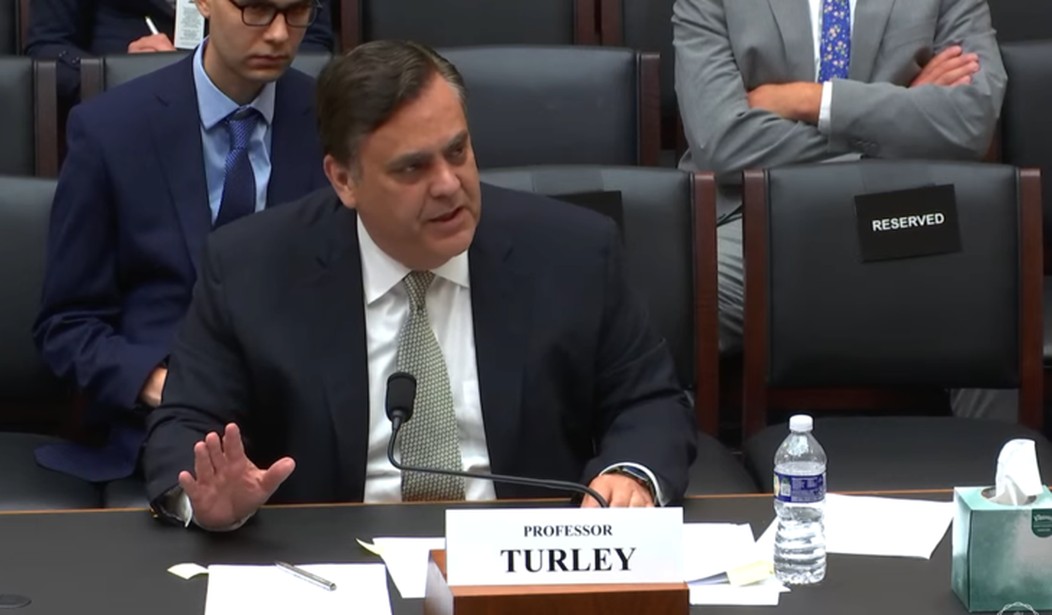We may have been setting record temperatures lately, but someone may want to check the thermometer in Hell, as it’s quite possibly getting a might chilly: The House Judiciary Committee held a hearing on Capitol Hill Friday morning, and there was almost universal agreement among the committee members. The topic? “Fixing FISA.”
While the fur flew in Wednesday’s hearing with FBI Director Christopher Wray as the duck, dodge, dip, dive, and dodge witness, Friday’s proceeding was seemingly a productive effort to determine what guardrails can and should be placed around Section 702 of the Foreign Intelligence Surveillance Act (FISA) (if it’s not eliminated outright) to rein in the government’s repeated violation of Americans’ Fourth Amendment rights. The witnesses included:
- Jonathan Turley, J.B. and Maurice C. Shapiro Professor of Public Interest Law, George Washington University Law School – testimony
- Phil Kiko, Principal, Williams & Jensen; former Chief of Staff and General Counsel, House Judiciary Committee; former Chief Administrative Officer, House of Representatives – testimony
- Gene Schaerr, General Counsel, Project for Privacy and Surveillance Accountability – testimony
- Elizabeth Goitein, Senior Director, Liberty and National Security Program, Brennan Center for Justice at New York University School of Law – testimony
(Links to their prepared written statements are helpfully included.)
There were a number of enlightening and — dare I say, hopeful — moments that came from the hearing, but it was the exchange between Rep. Russell Fry (R-SC) and George Washington Law Professor Jonathan Turley that I wanted to highlight. (Full video of the hearing is included, but it’s cued up to the exchange in question.)
Fry: Thank you, Mr. Chairman. You know, this is incredible; I mean, we finally — we’ve been fighting all week on the floor on the NDAA, and in this committee, it’s always a knife fight, it seems like, but in today’s hearing, we have, really, unanimous support for fixing this process — or letting it expire. But there’s a recognition across the entire country that this needs to be fixed.
You know, what’s perplexing to me, and we just had Director Wray come in — Professor Turley, you alluded to that earlier — who, if you ask agencies, “All is well in the Land of Oz.” And that’s just really not the case. We know that the FBI and other agencies have abused FISA to the nth degree. We know that they continually spy on Americans without a warrant. We know that they end around and they use data collection and geo-tagging, and geolocation to look at the activities of Americans. And, at the end of the day, you know, I look back and, Professor, you cited The Federalist Papers — you know, we are a nation of laws. We are not some Orwellian dystopia, where these things are appropriate or even allowed, and…but we’ve allowed them to happen. And I think, to the point of the entire panel, we really need to get a handle on this in a pretty aggressive way.
Professor Turley, I want to start with you. To hear the FBI talk about it, we should be celebrating that we went from two million illegal search queries to 200,000. Do you think this is cause for celebration?
Turley: No. It’s like a bank robber saying, “We’re hitting smaller banks.” I mean, its problem still is that you’re engaged in something you’re not supposed to do. Look, the thing that we have to keep in mind is that all governments are information junkies. That is consistent across all types of government; whether they’re democratic or authoritarian, they’re information junkies. They want more information. It’s not necessarily for nefarious purposes. It’s that they want data — they always do. And so, this impulse will exist, and it will grow unless you restrain it. I was baffled by the Director’s testimony. I — when he said that he wasn’t even aware of what “parallel construction” was, I was really taken aback because that’s a core issue in these FISA debates. It’s been an issue for years. And I just looked in disbelief when he said, “I’m not sure what that might be.” What that might be is a very serious threat to privacy that’s existed for years. It essentially replants material in order to create a different origin, and its purpose is to hide the original origin from courts. And as someone who’s litigated national security cases, I have to tell you that these cases are riddled with this type of sleight-of-hand. And I’m usually the cleared attorney in national security cases — I’ve had espionage, terrorism cases — and when you hit a FISA line, all the lights go off. I mean…the government gives you nothing.
But the other thing I want to emphasize about this commercially available information is it has another insidious problem, and that is: What happens is the government often wraps commercially available information into FISA applications, and then everything gets iron-plated under FISA, and when people like me finally see the applications in the SCIF, we find it’s loaded with material that should have been disclosed to defense counsel or trial counsel.
Fry then asked Turley what reforms he suggests to fix the FISA problem. Turley opined that the most important one is one that should have started and ended in 1978 — that you cannot engage in a search or query about a U.S. citizen without a warrant or court order, regardless of where it occurs, emphasizing the importance of a clear line. His suggestion is that Congress make clear: “That all searches or queries, wherever they are, of a U.S. citizen by a U.S. agency must be accompanied by a warrant or Title I order, period. And they can find a way to try and get around that, but that’s the brightest of bright lines.”
Given the reception by committee members of both parties to today’s testimony, I am hopeful that we see some genuine reforms directed at Section 702 and government surveillance emerging from Congress. I’m not holding my breath, but I am hopeful.















Join the conversation as a VIP Member